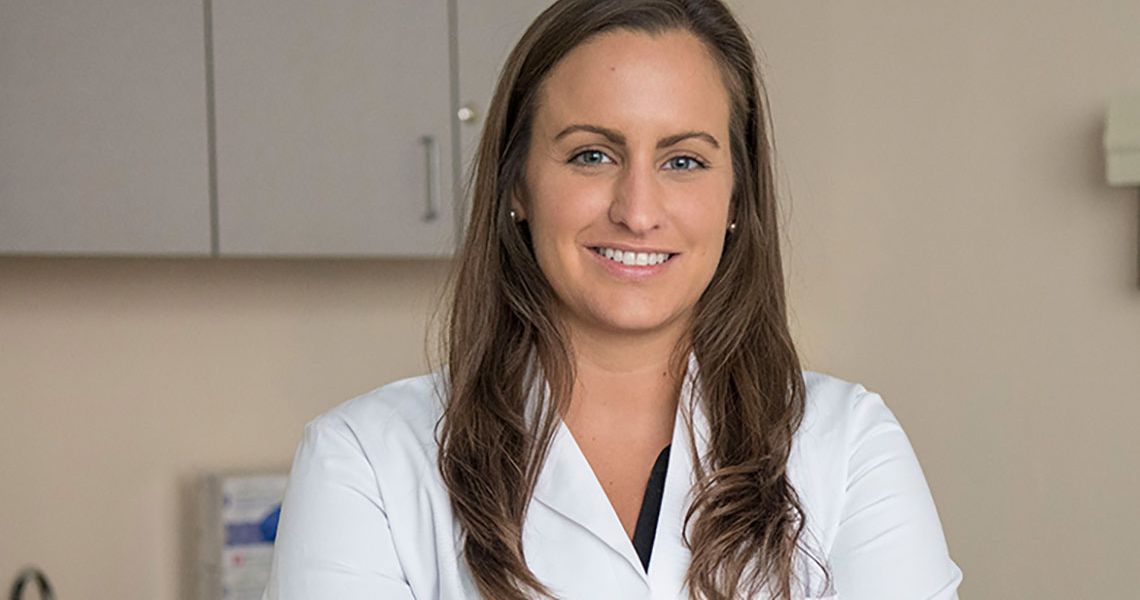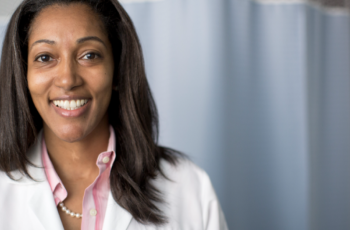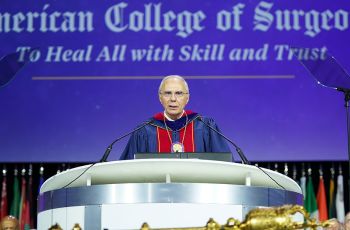Athletes are all too familiar with knee problems. For those who are starting to train again, or are increasing their training intensity, knee pain may become an issue. While most knee pain can be from repetitive use strain, some conditions can be severe, including ACL tears. Teresa Doerre, MD, a sports medicine physician and arthroscopic surgeon at The George Washington University (GW) Medical Faculty Associates (GW MFA) is an expert when it comes to sports injuries.
For Doerre, who also is an assistant professor of orthopaedic surgery at the GW School of Medicine and Health Sciences, sports are a passion both on and off the field. She offers insight into her experiences as a team physician and orthopaedic surgeon.
Q: What do you like about practicing medicine at the GW MFA?
Doerre: I've really enjoyed the people I work with at GW. I'm involved with teaching the residents and medical students, and their energy and enthusiasm reminds me of being at that point in my training. They get excited about the same things that attracted me to orthopaedics and sports medicine.
We also have a great group in the orthopaedic surgery department. I like being able to collaborate with my partners on cases and research.
Q: Tell me about your experiences being a team physician.
Doerre: During residency, I was an assistant team physician for two Bronx, New York, high school football teams. That was an experience that solidified my interest in sports medicine; it reminded me of how much playing sports meant to me, and I felt lucky to take care of athletes so they can have the same experience.
During my fellowship in Houston, I was an assistant team physician for the Texans, Rockets, Astros, and Dynamo. I also worked as an assistant team physician for the University of Houston and was a team physician for a Houston area high school.
In D.C., I have covered matches for the Washington Kastles and was helping with event coverage in the area. Unfortunately, due to the COVID-19 pandemic, a lot of organized sports and events have been canceled.
Q: As a team physician, what are the most common injuries that you see in sports? How can athletes take steps to help reduce the risk of injury?
Doerre: Sports injuries are usually due to overuse or trauma. Strains and sprains are the most common, but I also frequently see ligament and tendon tears, dislocations, fractures, and concussions.
Athletes can reduce their chance of injury by warming up and maintaining good flexibility with stretching. Cross-training, strength training, and using appropriate technique/form also can help with injury prevention. I stress the importance of having appropriate periods of rest and recovery.
Q: Why did you choose orthopedic surgery as your specialty?
Doerre: I decided to go into orthopaedics because I loved the musculoskeletal anatomy. Learning about the extremities was my favorite part of Anatomy in medical school. I liked the idea of being able to fix things and see an immediate result for some of the injuries we treat, such as putting on a cast or fixing a fracture in the operating room.
Growing up, sports were a huge influence on my life, and playing sports taught me many practical lessons that I’ve used throughout my training. I wanted to specialize in sports medicine because working with athletes is so satisfying; helping people get back to activities and sports that they enjoy.
In sports medicine, we often use arthroscopy, which involves using a camera to look inside a joint to do repairs and reconstructions in a less invasive way. It’s a technique that I enjoy using and it produces great results and it’s another reason I was drawn to sports medicine.
I’ve had experience taking care of all types of patients, from professional to recreational athletes. I really enjoy working with patients to understand their goals and how I can help them figure out the right treatment for them as an individual.
Schedule Your Visit
Dr. Doerre is currently accepting new patients and is ready to see you virtually or in-person for your sports injuries. Don’t delay care, call GW Orthopaedics at (202) 741-3300 or schedule an appointment online.




